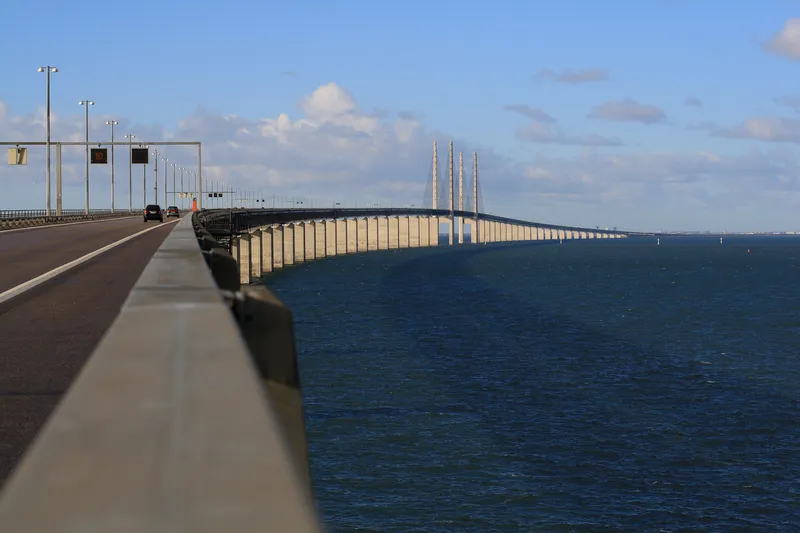
Kapsch TrafficCom has extended its maintenance support for the tolling operation on the Øresund bridge until 2031.
The iconic structure - which featured in international TV hit crime drama The Bridge - runs between the Copenhagen and Malmo metro areas, connecting Denmark and Sweden.
The bridge is 8km (five miles) long and carries 600,000 vehicles each month. Kapsch will deliver ongoing maintenance of the existing tolling roadside system, including cameras and other sensors.
Kapsch's new deal, which also includes point-of-sales software and hardware, is set to run from February 2026 until January 2031 and is worth between €3 million and €6m, "depending on upcoming change requests", the firm says.
Michael Weber, head of sales EMENA at Kapsch TrafficCom, says the hundreds of thousands of vehicles passing each month show the bridge is "a significant positive factor of integration of the two regions".









